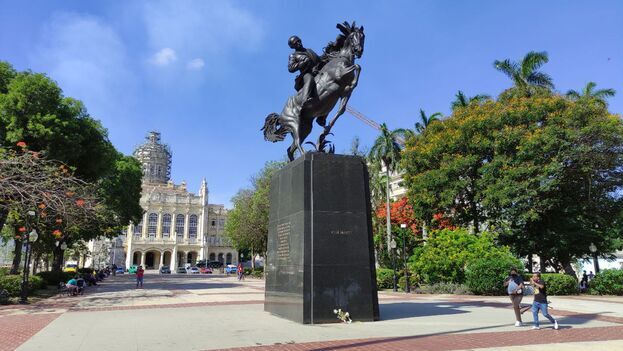
![]() 14ymedio, Pedro Corzo, Havana, 28 January 2023 — We are 170 years after the birth of José Martí, a citizen par excellence, a man who at the young age of 17 was sentenced to serve six years of forced labor for writing a critical letter to a young man who had enrolled in the volunteer security forces in favor of Spain to combat the Cuban insurgency. Absurd and unfair sentence, like most of those currently handed down by the Castro-Chavista regimes that prevail in Cuba, Nicaragua, Venezuela and Bolivia.
14ymedio, Pedro Corzo, Havana, 28 January 2023 — We are 170 years after the birth of José Martí, a citizen par excellence, a man who at the young age of 17 was sentenced to serve six years of forced labor for writing a critical letter to a young man who had enrolled in the volunteer security forces in favor of Spain to combat the Cuban insurgency. Absurd and unfair sentence, like most of those currently handed down by the Castro-Chavista regimes that prevail in Cuba, Nicaragua, Venezuela and Bolivia.
Martí was a man consistent with his convictions, without considering the risks that could arise from his decisions. He was also a notable intellectual.
Writer, poet, journalist, thinker, but more than any other condition, a lucid patriot, a notable organizer and a man fully identified with democracy, which is why, when he established the Cuban Revolutionary Party in 1892, the most precise commitment was to create the bases for the establishment of a democratic republic in Cuba, “a fair republic” “with all and for the good of all.”
The dedication to his patriotic convictions was absolute. He disembarked in Cuba in a precarious boat and on May 19, 1895, despite having no combat experience, he set out to face an enemy force only to die “facing the sun,” as he had predicted in one of his poems, “I am good and as good, I will die facing the sun.”
Castro’s totalitarianism has committed innumerable crimes, but one of the most horrendous was identifying José Martí with his revolutionary project. Intoxicating the new generations with the false propaganda that the Apostle* was the inspirer of the process that had begun in Cuba in 1959 was a lie that germinated in many people, to the point that there are many who fought totalitarianism thinking that Martí had been the promoter of that shameful regime.
Whoever studies Martí will easily realize that because of his life’s work he could not promote a dictatorship, let alone a totalitarian regime. The man who said: “Freedom is the right that people have to act freely, think and speak without hypocrisy,” would never have been able to defend a society of double standards like the one established in Cuba by the Castros.
Nor would he support a regime that instituted hatred between labor and capital, about which he wrote: “The worker’s right can never be hatred of capital; it is harmony, conciliation, the common approach of one and the other.”
The Apostle was never a sectarian, divisive man, the essence of the Castro dictatorship. Martí worked intensely for the unity of Cubans and for the respect that every human being deserves, even when he acts miserably. He always rejected hatred, a key instrument of totalitarianism and ideological populism, which he considered a nefarious sentiment. That is why he said: “There is no forgiveness for acts of hate. The dagger that is stuck in the name of freedom is stuck in the chest of freedom.”
The man who made the Necessary War was also capable of affirming that a republic is not governed like a barracks. He was a man of civil law, a republican, never a dictator. Totalitarianism is the extinction of the republic, the end of citizen rights.
Martí’s example must germinate among us. His perseverance, patriotic stubbornness, manifested with particular vehemence after the failure of La Fernandina, show a man who never gave up and who assumed his commitments regardless of what the results were going to be, a conduct that many honor today. #José Martí is a rich source of knowledge. His vast work should be studied by those who aspire to be politicians because it is a reservoir of wise reflections on problems inherent to public affairs. He was an exceptional man for the fact that he defended his ideals to the last consequences, but he was also exceptional for the richness of his thought and the vastness of his teachings.
José Martí, for Cubans the greatest symbol of freedom, would be very alarmed by the situation that the geographical space he called Our America is currently facing, a crisis that is largely induced by the regime that has tried to plagiarize his teachings.
*Translator’s note: Cubans of all political persuasions refer to José Martí as “the Apostle.”
____________
COLLABORATE WITH OUR WORK: The 14ymedio team is committed to practicing serious journalism that reflects Cuba’s reality in all its depth. Thank you for joining us on this long journey. We invite you to continue supporting us by becoming a member of 14ymedio now. Together we can continue transforming journalism in Cuba.
